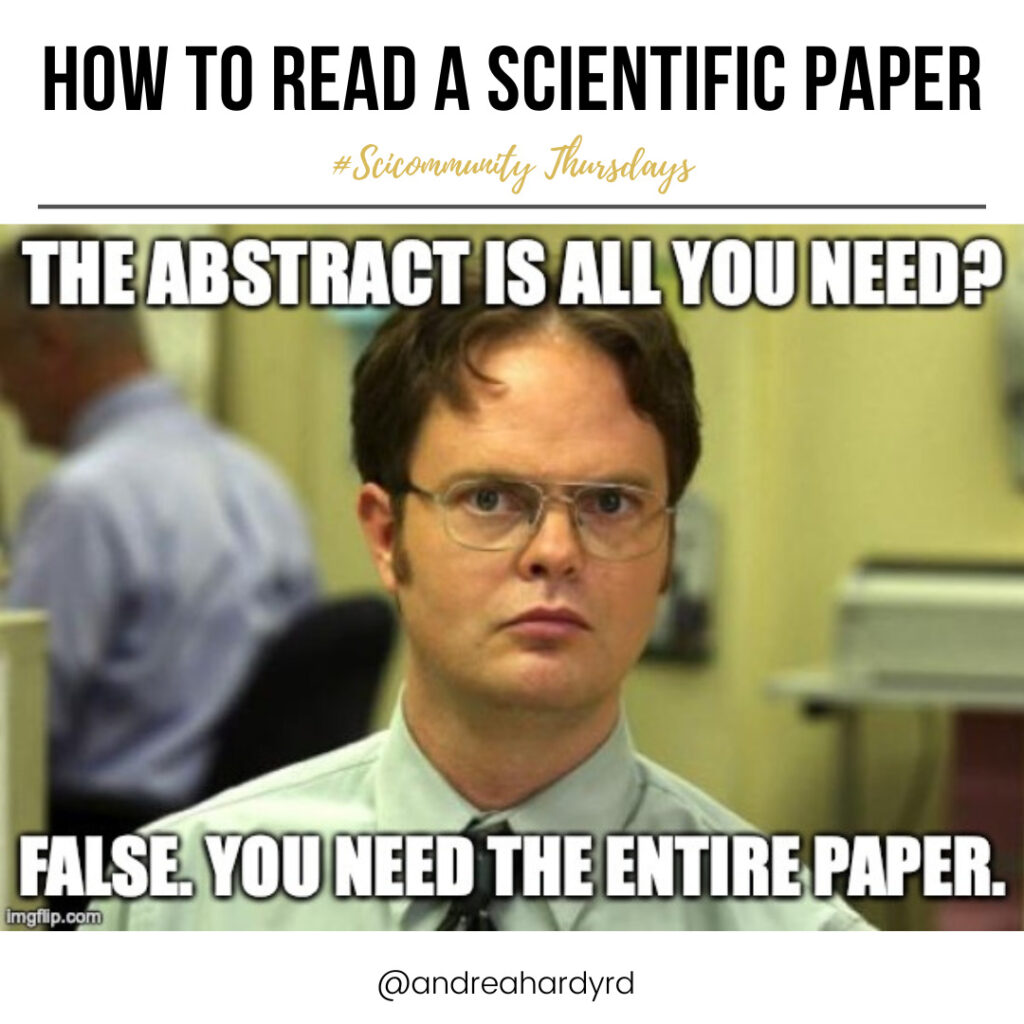You may be wondering how to read a scientific paper. On Instagram @AndreaHardyRD, I talk all about how to read scientific papers, what to look for when you are reading other people’s work who are citing research and how to make sense of it all.
#scicommunity Thursdays is back with how to read a scientific paper!
This topic is a doozy. But let me start with where I see people making mistakes.
🔖The BIGGEST mistake I see people make is citing research, but really just citing a blog or media article that cited research.
If you haven’t looked at the study, you have NO idea if what the blogger or journalist is saying is accurate (spoiler alert, this is probably the #1 problem with misinformation I see… it’s SO believable when someone cites ‘research’ – but who knows if they even read or understood the paper!)
🤔The second big thing I see is just reading the abstract and taking the summary at face value.
Abstracts are GREAT. For seeing a brief overview of the hypothesis, study design, and outcomes. But unless you read the whole paper, you have no idea the quality of interpretation of the findings.
🤓My Pro Tips for Getting Started With Paper Reading🤓
1. Read the WHOLE paper. Even the statistics section, and even if you don’t fully understand it. Highlight. Write down your questions. Circle what you don’t understand to come back to or learn more about. Look up the references the paper cited, and do it again!
2. Get critical. You don’t know what you don’t know, but go ahead and try and poke holes in the evidence they pulled to build their hypothesis. Question the study design. If you have the skills, evaluate the statistical analysis choices they made.
3. Read the discussion section, especially for identified limitations and shortcomings.
In good research, the team goes and tries to tear apart their own paper so they can point out the limitations. In a good peer review, the reviewer challenges the discussion points, hopefully from a different perspective to find even more gaps.
Good research requires good critique. The best part of reading a scientific paper is you can BE part of that critique! Don’t look at abstracts to confirm your biases, instead, go in with a critical eye and look for gaps – its so much more effective in actually understanding the science!


Recent Comments